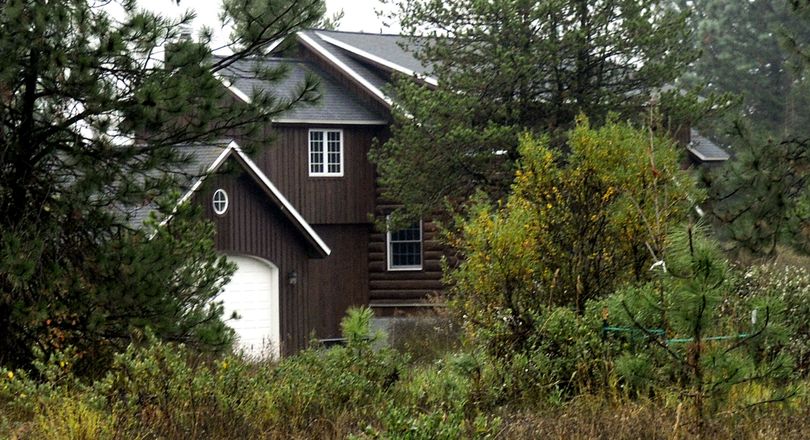Ex-Idaho Rep. Phil Hart settles federal tax dispute, home to be auctioned

 Tax-protesting former Idaho state Rep. Phil Hart has settled his long-running delinquent taxes case with the IRS, agreeing to let the feds auction off his Athol home for back taxes - the same home he built partly with logs he illegally cut from state school endowment land, arguing he had a right to them as a citizen.
Tax-protesting former Idaho state Rep. Phil Hart has settled his long-running delinquent taxes case with the IRS, agreeing to let the feds auction off his Athol home for back taxes - the same home he built partly with logs he illegally cut from state school endowment land, arguing he had a right to them as a citizen.
As part of the settlement, Hart dropped claims that an array of others actually owned his home, and a string of bankruptcy filings in which he attempted to avoid losing it. He also agreed to make both monthly and annual payments to the IRS for the next nine years toward his more than $500,000 federal tax debt. If he misses a payment, the full amount would be due immediately: $586,304.70.
Hart was defeated in his bid for a fifth term in the state House in the 2012 GOP primary, but he’s remained active in state GOP politics. He currently is the Idaho Republican Party’s Legislative District 2 chairman, and is vice-chair of the Republican Liberty Caucus, an affiliated group.
Hart stopped filing both federal and state income tax returns in 1996 while he unsuccessfully pressed a federal lawsuit challenging the federal income tax as unconstitutional; after the case was rejected, he began filing returns again, but authorities said he never fully paid up. He’s also been fighting an order to pay more than $53,000 in back state income taxes, interest and penalties; he’s lost numerous appeals in that case, including one to the Idaho Supreme Court. The federal settlement doesn’t cover the state taxes.
“The state of Idaho still has a claim against Phil Hart,” said Phil Skinner, lead deputy Idaho attorney general for the Idaho State Tax Commission. “However, the reality is the IRS has such a large claim against him and they’re first in line in priority, that we’ll probably never see anything.” You can read my full story here at spokesman.com.
As part of the settlement, Hart agreed to preserve the Athol home in its current condition and maintain insurance on it; and vacate it within seven days of the sale if he’s not the high bidder. He agreed to allow an open house within the two weeks prior to the sale, and not to “deter or discourage potential bidders from participating in the public auction, nor … cause or permit anyone else to do so.”
Court documents say Hart will be allowed to bid on the Athol home like any other bidder, if he’s able to obtain financing; but if he’s the high bidder, he’d have to pay all the back property taxes on top of the sale price. Since 2012, Hart’s racked up $8,777 in unpaid property taxes on the home, according to Kootenai County records. If someone else has the high bid, the back property taxes would come out of the sale proceeds.
Hart tried to get a federal bankruptcy court to seal the settlement, arguing that it would expose “scandalous” information about him, but Chief Bankruptcy Judge Terry Myers refused. “Sealing is … inconsistent with the general proposition that the judicial records and processes of the federal courts are open and public,” the judge ruled. Hart “did not suggest a good reason, much less a compelling reason, for this court to depart from its view on the public and open nature of its records.”
